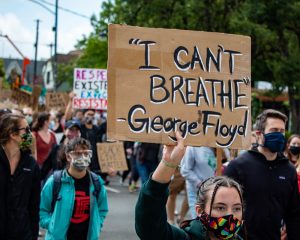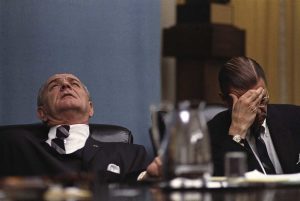
Florida Gov. Ron DeSantis and Donald Trump, not social distancing on April 28, 2020
The news about COVID (a/k/a Coronavirus or COVID-19) cases in Florida is coming fast and furious, and it’s not good. Cases are skyrocketing. Additionally, Apple announced Friday morning that it was temporarily re-closing all 14 of its South Florida stores (located in Miami-Dade County, Broward County and Palm Beach County, where the most COVID cases have occurred in the state). And also on Friday, the state of Florida banned alcohol sales at all bars statewide. It feels like a more extensive lockdown is inevitable. And it’s happening three days after the Director of the Centers for Disease Control (CDC) said that the Coronavirus has “brought this nation to its knees,” but that, at the same time, our efforts to fight the virus are still underfunded. Let’s take a look at this Republican failure of government:





